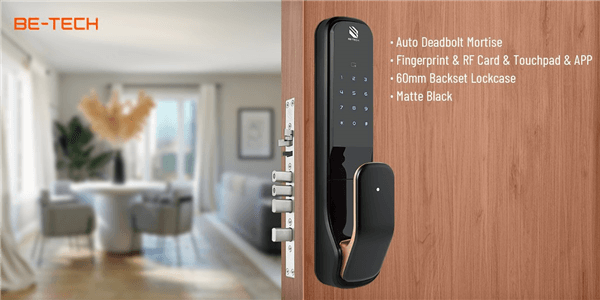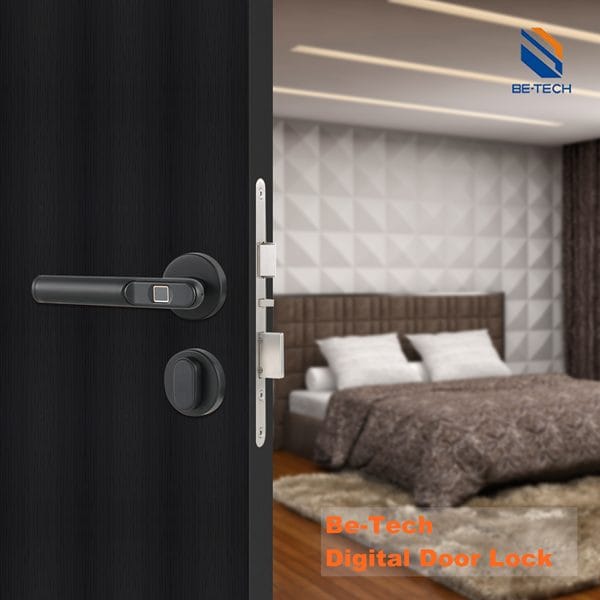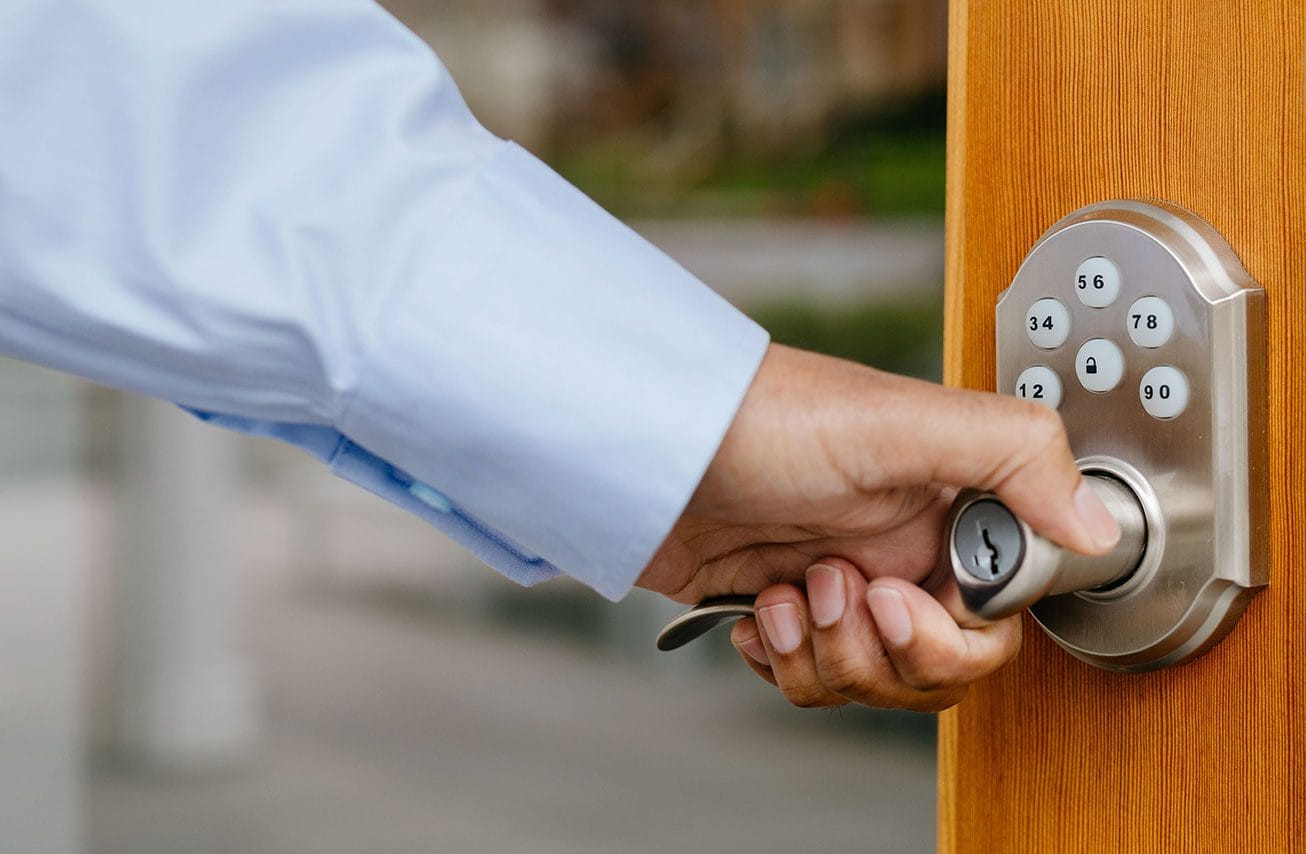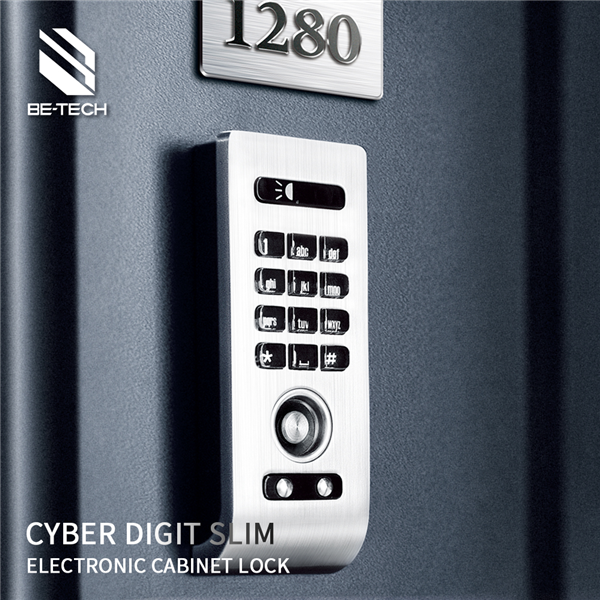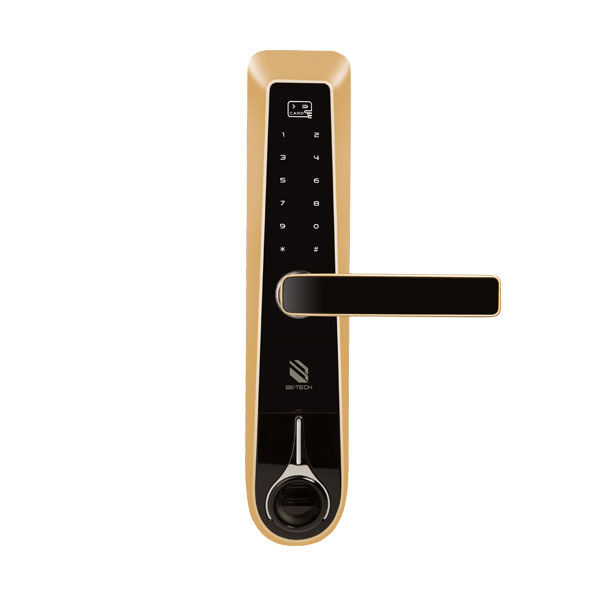In an increasingly connected world, home security has never been more important. While traditional locks have served us well for centuries, they are no longer enough to meet the demands of modern life. Digital door locks are revolutionizing home security by offering a seamless blend of convenience, security, and smart technology. This comprehensive guide will unlock the world of digital door locks, exploring their benefits, types, and key factors to consider when choosing the best one for your home, apartment, or business.
Understanding Digital Door Locks: A New Era of Security
Digital door locks, also known as keyless entry systems or smart locks, have emerged as a popular alternative to traditional mechanical locks. Unlike their predecessors, which rely on physical keys, digital door locks use electronic mechanisms to grant access. This means no more fumbling with keys or worrying about lost or stolen keys.
The Evolution of Door Lock Technology
The journey of door lock technology has been a fascinating one. From simple wooden latches to intricate mechanical locks, the desire to secure our belongings and homes has driven innovation for millennia. The 20th century brought about the invention of the pin tumbler lock, a design that remains widely used today. However, the dawn of the digital age ushered in a new era of security. Early electronic locks relied on simple keypads and basic encryption, but advancements in microelectronics, wireless communication, and biometric technology have led to the sophisticated smart locks we see today.
How Digital Door Locks Work
At the heart of a digital door lock lies an electronic control unit (ECU), which acts as the brain of the system. The ECU receives input from various authentication methods, such as keypads, RFID cards, or fingerprint scanners. Once the input is verified, the ECU sends a signal to an actuator, an electric motor that controls the deadbolt or latch mechanism. Many digital door locks also incorporate sensors to detect door status (open or closed) and trigger actions like auto-locking.
Factors to Consider When Choosing the Best Digital Door Lock
Choosing the right digital door lock can be a daunting task, especially with the wide variety of models and features available. To make an informed decision, consider these key factors:
Security Features
- Encryption Standards: Look for locks that use strong encryption protocols, such as AES (Advanced Encryption Standard) or RSA (Rivest–Shamir–Adleman), to protect communication between the lock and its components.
- Anti-Tamper Mechanisms: Choose locks with features like anti-bump, anti-drill, and anti-pick designs to deter physical attacks.
- Alarm Systems: Some locks have built-in alarms that trigger when there are repeated incorrect entry attempts or attempts to tamper with the lock.
- Indoor Electronic Double Lock Switch: For enhanced security, some models offer an indoor electronic double lock switch that can only be unlocked using the master code.
Access Methods
- Keypad Access: The most common type, allowing you to enter a PIN code to unlock the door.
- RFID Cards or Key Fobs: Offer contactless access using a card or fob that communicates with the lock wirelessly.
- Biometric Scanners: Use fingerprints or facial recognition to authenticate users, providing a high level of security.
- Smartphone Control: Many smart locks allow you to lock and unlock your door remotely using a smartphone app. Some even offer features like temporary access codes for guests.
Smart Home Integration
Smart home integration has become a key consideration for many homeowners. If you are building a smart home ecosystem, choose a digital door lock that is compatible with your chosen platform. This will allow you to control your lock alongside other smart home devices and create automations for added convenience and security.
Power Source
Most digital door locks are battery-powered. It is essential to check the expected battery life and consider models that offer low-battery warnings. Some locks also have backup power options, such as using a 9V battery or a mechanical key override, to ensure access even if the main batteries die.
Durability and Weather Resistance
Your door lock is exposed to the elements, so durability is crucial. Look for locks made from high-quality materials, such as stainless steel or zinc alloy. Many locks are also weather-resistant, designed to withstand extreme temperatures, humidity, and precipitation.
Aesthetics and Design
Digital door locks are available in a variety of designs and finishes to complement your home’s style. Consider factors such as the color, material, and handle design to ensure the lock seamlessly blends with your door and overall decor.
Brand Reputation and Customer Support
Choosing a lock from a reputable brand with a good track record is essential. Look for brands that offer comprehensive warranties, reliable customer support, and a history of addressing security vulnerabilities proactively. Some brands, like Be-Tech, participate in vulnerability disclosure programs, which encourage security researchers to identify and report potential weaknesses.
Pricing and Value
Digital door lock prices vary widely based on features, brand reputation, and build quality. It is important to determine your budget and prioritize the features that are most important to you. While you don’t want to compromise on security, it is possible to find high-quality locks at reasonable prices.
| Brand and Model | Type | Access Methods | Smart Features | Security Features | Price Range |
|---|---|---|---|---|---|
| Be-Tech K3S Smart Deadbolt | Deadbolt | Smartphone app, PIN code, Fingerprint, Mechanical key | Auto-lock, Remote access, Temporary codes | Automatic locking, Encryption | $200-$250 |
| Be-Tech F3 Electronic Digital | Digital Lock | Facial recognition, Keypad, Mechanical key | AI-powered smart door mirror | User-friendly programming | $150-$200 |
| August Wi-Fi Smart Lock | Retrofit | Smartphone app, Auto-unlock | Wi-Fi connectivity, DoorSense | Auto-lock, Encryption | $200-$250 |
| Yale Assure Lock 2 | Deadbolt | Touchscreen keypad, Key (optional) | Wi-Fi connectivity, Voice control | Auto-lock, Tamper alerts | $250-$300 |
| Schlage Encode | Deadbolt | Touchscreen keypad, Key | Wi-Fi connectivity, Voice control | ANSI Grade 1 rating | $200-$250 |
| Kwikset Kevo | Deadbolt | Touch-to-open, Smartphone app, Key fob | Bluetooth connectivity | Military-grade encryption | $200-$250 |
Digital Door Locks for Specific Applications
Digital door locks cater to a variety of applications, each with unique considerations:
Residential Homes
For homeowners, convenience and security are top priorities. Smart locks that offer smartphone control, auto-locking, and multiple access methods are popular choices for simplifying daily life and enhancing peace of mind.
Apartments and Rental Properties
Digital door locks are ideal for property managers and landlords, allowing them to manage access remotely, grant temporary codes to tenants, and track entry logs. Models with features like audit trails and user code management are particularly useful for rental properties.
Businesses and Offices
Digital door locks are becoming increasingly common in commercial settings, providing controlled access to employees and visitors. RFID card access is popular for offices, while biometric scanners are often used for high-security areas.
Hotels and Hospitality
Digital door locks have revolutionized the hospitality industry. RFID card-based locks are ubiquitous in hotels, allowing guests to use their room keys for various purposes, such as accessing elevators or paying for amenities.
Healthcare Facilities
Security and access control are paramount in healthcare settings. Digital door locks are used to restrict access to sensitive areas, such as pharmacies or operating rooms, and to track staff movement for safety and compliance purposes.
Digital Door Lock Security and Privacy: Addressing Concerns
While digital door locks offer numerous benefits, it is essential to address concerns surrounding their security and privacy:
Potential Vulnerabilities
As with any connected device, digital door locks can be vulnerable to cyberattacks. Hackers may attempt to exploit vulnerabilities in the lock’s software or communication protocols to gain unauthorized access.
Data Privacy
Smart locks collect data about user access patterns. It is important to understand how this data is stored, used, and shared by the lock manufacturer. Look for brands with transparent privacy policies and data security practices.
Mitigating Risks
- Choose Reputable Brands: Select locks from brands with a proven track record in security and a commitment to addressing vulnerabilities promptly.
- Strong Passwords: Use strong, unique PIN codes and change them regularly.
- Enable Two-Factor Authentication: When available, enable two-factor authentication for an extra layer of security.
- Software Updates: Keep your lock’s software updated to patch known vulnerabilities.
- Physical Security: Ensure the lock itself is installed correctly and that the door and frame are sturdy enough to resist physical attacks.
Expert Quote:
“While digital door locks offer significant advantages in terms of convenience and security, it is crucial to be aware of potential risks and take steps to mitigate them. Choosing locks from reputable brands with strong security practices, enabling two-factor authentication, and keeping software up to date are essential for protecting your home and data.” – Be-tech
The Future of Digital Door Locks: What Lies Ahead
The digital door lock industry is constantly evolving, driven by advancements in technology and changing consumer needs. Here are some trends shaping the future of digital door locks:
Advanced Biometrics
Biometric authentication is becoming increasingly sophisticated, with new technologies like iris scanning and voice recognition emerging. These advancements offer even higher levels of security and convenience.
Artificial Intelligence (AI)
AI is playing a growing role in door lock technology. Smart locks with AI capabilities can learn user behavior, detect anomalies, and enhance security proactively.
Integration with Smart Home Ecosystems
Digital door locks are becoming integral parts of smart home ecosystems, allowing for seamless control and automation alongside other devices. This integration is driving the development of features like voice control and personalized access settings.
Sustainability
As sustainability gains importance, manufacturers are focusing on developing energy-efficient digital door locks. Locks with low-power consumption modes and longer battery life contribute to reducing environmental impact.
Conclusion
Digital door locks have transformed the way we secure our homes, businesses, and lives. With their unparalleled blend of convenience, security, and smart technology, they are paving the way for a future where keyless entry is the norm. By understanding the different types, features, and security considerations, you can choose the best digital door lock to meet your specific needs and embrace the next generation of home security.
Ready to upgrade your home security and unlock the benefits of digital door locks? Browse our selection of top-rated digital door locks or download our free Digital Door Lock Comparison Checklist to help you make the right choice!


